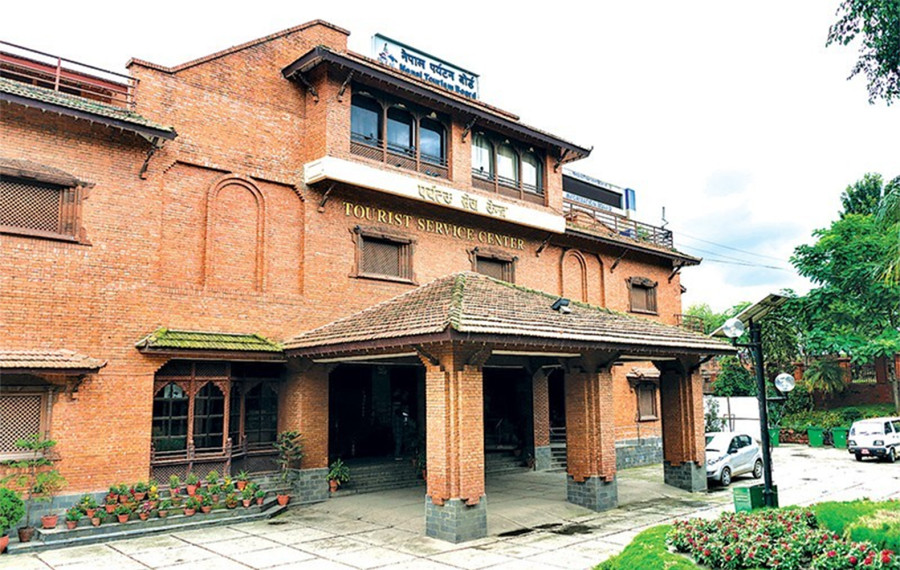Money
Tourism Board's age limit for recruitment challenged in court
The vacancy announcement says applicants for the post of CEO should be between 35 and 60 years old.
Sangam Prasain
The Nepal Tourism Board's age limit for recruitment for the post of CEO has been challenged in court.
A retired government joint secretary filed a public interest litigation at the Supreme Court on December 16 seeking a rationale for imposing lower and upper age limits for hiring.
The vacancy announcement published by the CEO selection sub-committee of the tourism promotion body on December 4 said that applicants should be between 35 and 60 years old.
“The issue of lower and upper age limits is not only my concern, but also a broad public concern,” said the plaintiff Khadananda Dhakal. “The court may issue a show cause notice to the CEO selection sub-committee,” said Dhakal who formerly served at the Office of the President and the Tourism Ministry.
According to him, neither the Nepal Tourism Board Act nor the Nepal Tourism Board Rules has any set of rules defining the upper and lower age limits. The Nepal Tourism Board Bylaws, however, have set the upper age limit at 58 but there is no limit for the CEO.
“There is no justification why the CEO selection sub-committee has imposed the age limits,” Dhakal told the Post.
The prospective CEO should have 10 years’ experience in the tourism sector, at least a Master’s degree, and should not possess permanent resident status in any country.
A member of the CEO selection sub-committee said that they had not received any notice from the court. “It was the Nepal Tourism Board’s board decision to impose the age limit while appointing the new CEO,” the anonymous member told the Post. “We cannot comment on the issue until we get the court’s notice.”
Some officials at the country’s tourism promotion body said the controversy may delay the appointment process, a longstanding hallmark of the Nepal Tourism Board.
From the beginning, some private sector representatives had questioned the rationale behind setting the minimum and maximum age bars for the CEO. The last date for submitting applications is December 24.
While the hunt for a new CEO of the Nepal Tourism Board has begun, its board of directors has extended the incumbent chief’s term by another three months fearing that the selection process may be delayed on the eve of much-hyped Visit Nepal 2020.
The government has planned to inaugurate the campaign that aims to bring 2 million tourists next year on January 1.
The four-year term of CEO Deepak Raj Joshi is due to end on December 24.
The process of appointing the new chief takes at least two months even in the best of times. Industry insiders say they don’t believe the appointment process will be completed on time, considering the history of rampant political manoeuvring at the cash-flushed Nepal Tourism Board.
CEO Joshi has not said whether he will serve his extended term with only a week remaining for him to retire, according to a board member.
A three-member CEO selection committee led by Biplab Paudel, executive director of the Hotel Barahi in Pokhara, who also sits on the board of directors of the Nepal Tourism Board representing the private sector, has been entrusted with the task of appointing the CEO.
Other members are Ghanshyam Upadhyaya, joint secretary at the Tourism Ministry, and Krishna Bahadur Mahara, proprietor of the Hotel Devotee in Dhangadhi who sits on the board representing the private sector.
The Nepal Tourism Board’s 11-member board consists of five representatives each from the government and the private sector besides the CEO. The tourism secretary chairs the board.
The Nepal Tourism Board was established in 1998 under a public-private partnership model with the mandate to promote Nepal in domestic and international markets.
The CEO appointment process at the board has run into controversy in the past too. In 2011, the board shortlisted 12 CEO hopefuls; but it took four years for the successful candidate to be named. The period between 2011 and 2015, when the chief was finally selected, was marked by two dozen writ petitions asking to halt or postpone the appointment process.




 9.7°C Kathmandu
9.7°C Kathmandu















